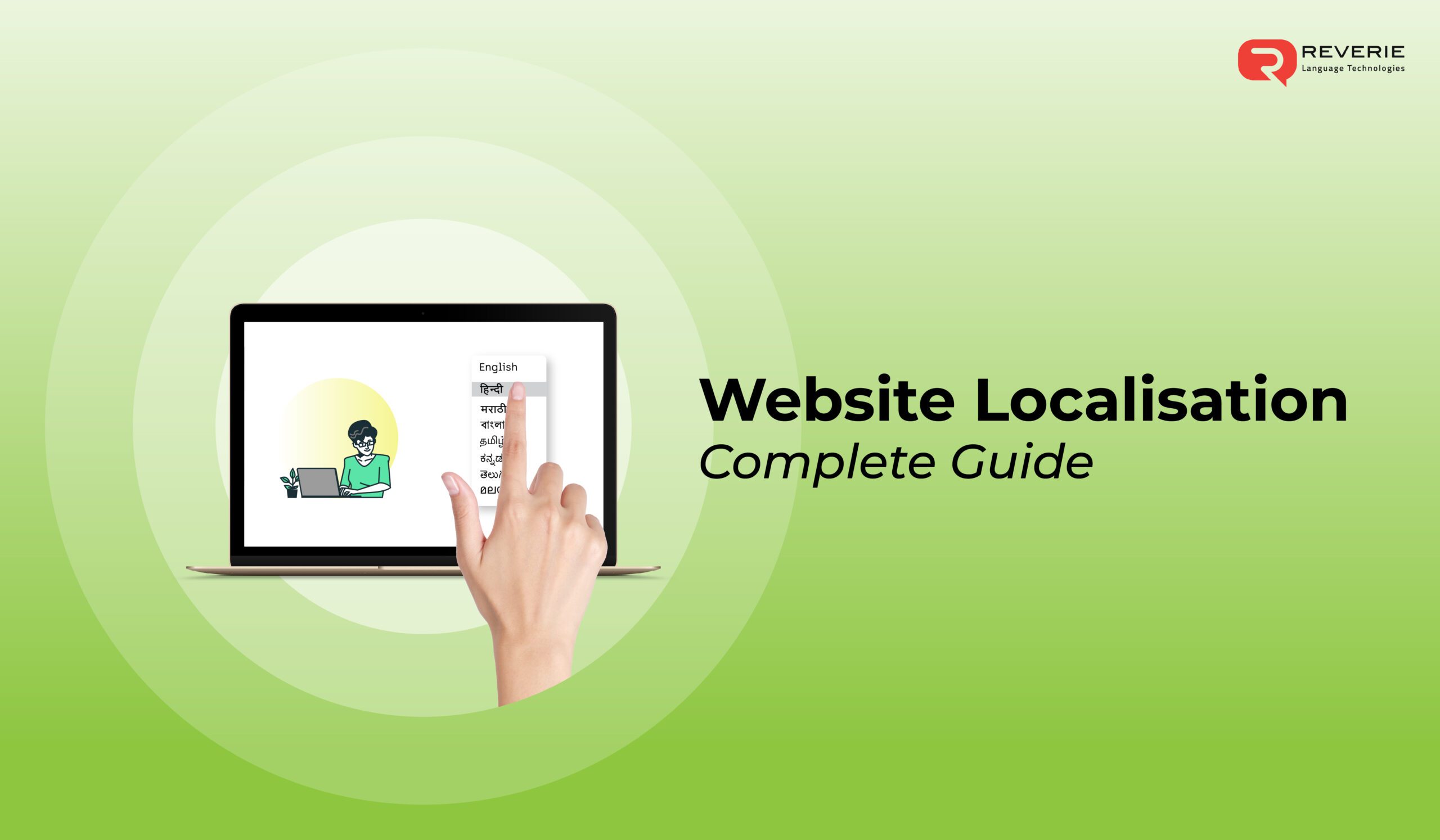Brick-and-mortar shops spend a lot of effort and financial resources to make their physical storefront as appealing as possible so that when their local audiences pass by, they are enticed to enter the store. The same holds true for an online business. The web store or app should connect with and appeal to your audience. Consider your website as your brick-and-mortar shop, both for your global and local audiences.
As businesses build their multilingual website in 2024, they need to consider how they cater to local audiences and their language preferences. For example, in the e-commerce sector, 73% of consumers worldwide prefer to read product reviews in their native language before making a purchase and 40% of shoppers won’t buy a service or a product from a website in a non-native language.
Businesses need to understand that their customers need to be catered not only linguistically but also culturally This is where website localisation comes in. Website localisation is the process of adapting your website’s design, content, and functionality to cater to the cultural and linguistic requirements of your regional audience. The opportunity to capture the vast Indian market through multilingual websites with the aid of local languages is huge. Let’s talk about the impact of local languages in India.
Local Languages: The Winning Formula For Indian Businesses
When Flipkart launched its 10th edition of ‘The Big Billion Sale’ in 2023, it got 1.4 million customer visits. The majority of these visits were from tier 2 cities and rural India. Flipkart was able to achieve this by targeting local audiences through multiple languages. Flipkart is currently available in 10 Indian languages which has been a crucial driver in establishing a connect with the local Indian consumer.
Local regions have untapped market potential for Indian businesses. This is because of the massive internet penetration in India. Half of the Indian population are active internet users and according to Google, 90% of this population prefers content in Indian languages. So if your website is limited to one or two languages, you are missing out on millions of customers. Brands have embraced website localisation to increase the viewership of their websites significantly.
Indian businesses must embrace local languages to increase their digital footprint. A localised approach to business is the first step to stand out among your competitors and will automatically add value to your brand name. But is website localisation just limited to localising content on websites? Let’s get into more details of website localisation.
Also read: Why Choose Website Localisation Over Website Translation
Website Localisation in 2024: Things to Keep in Mind
Website localisation is not just about localising your content to cater to target audiences anymore. It goes beyond that. Customer needs and expectations have evolved remarkably.
Let’s say you want to market your e-commerce website in a local area in Maharashtra. Your website localisation strategy just shouldn’t be, “I will translate my website into Marathi”. Study the local market carefully. Your local audience may prefer cash on a delivery option instead of instant payment during purchase. There are certain nuances that need to be considered in the website localisation strategy apart from localising your content based on the target audience.
Payment methods
This is the central part of any e-commerce website localisation. Based on your target audience, you need to offer the payment method that they prefer. Conduct market research and offer the best payment methods among credit or debit cards, digital wallets, bank transfers, mobile payments, cash on delivery, and UPI payments.
Shipping options
Who doesn’t love 1-day shipping or free shipping options when shopping online? Your market research should also include the shipping options that are favoured by the local audience. Adding options for 1-day delivery, free shipping, or expected date of delivery based on your target market will have a huge impact on your website localisation strategy.
Web design sensibilities
Your localised content won’t successfully reach your target audience if you don’t account for your user interface (UI) and user experience (UX). Depending on the audience and the language you are targeting, you need to choose the preferable colour combinations, images that represent the local people, and the correct number conventions & symbols. Your website localisation efforts will impact this since the UI elements will be different for all local languages.
Localised customer support
With the advent of AI bots, multilingual customer support has been on the rise. Customer experience (CX) is an important factor to keep in mind during website localisation. To serve your local audience, make sure you localise real-time voice, chat, and ticket management. With your online helpdesk localised, your multilingual customers will be engaged with your brand.
Localised SEO
Website localisation opens doors to new opportunities in SEO strategy. Keywords that work in one language will not have the same effect in another. Localising your website’s meta title, descriptions, and alt text will help you increase traffic in your target local region.
Localised website management
Entering local markets in different areas of India simultaneously is a challenge. Partnering with language localisation experts with automated localisation using neural machine translation will consolidate your localisation process and empower you to efficiently manage your localised business operations.
Anuvadak: Localise and Manage Multilingual Website With Ease
Localise, manage, analyze, and automate your website localisation strategy with Anuvadak, Reverie’s website localisation and translation platform.
Benefits of Anuvadak
- Localise in all 22 official Indian languages with ease.
- Track and manage the localisation process benefiting businesses with cost savings, streamlined operations, enhanced control over projects, and improved user experience.
- Simple and intuitive dashboard to gain and analyze valuable insights.
- Automate your website localisation process to save time and reduce manual effort.
Go live with your multilingual website with 3 easy steps
- Setup with zero downtime.
- Proofread, edit, and update your localised content effortlessly.
- Go live with a 5X faster go-to-market time.
Scale your business efficiently with the most trustworthy website localisation and translation platform in India. Click here to start your website localisation journey.


